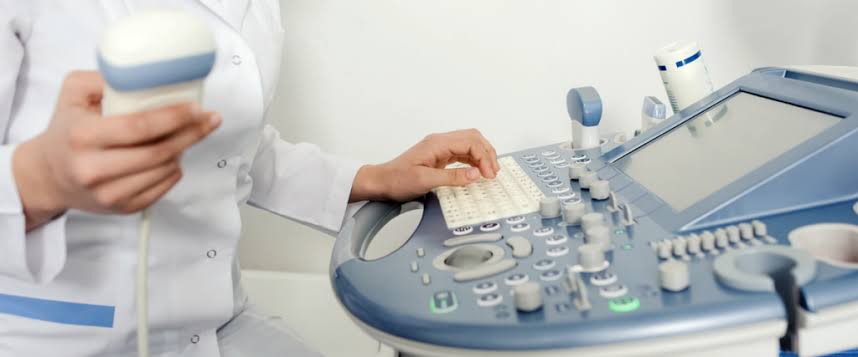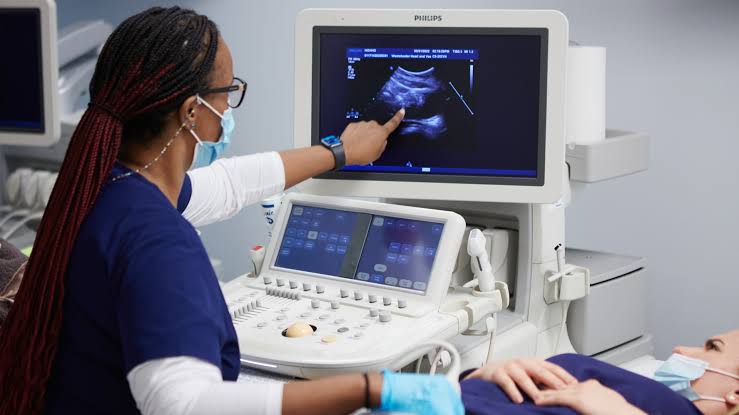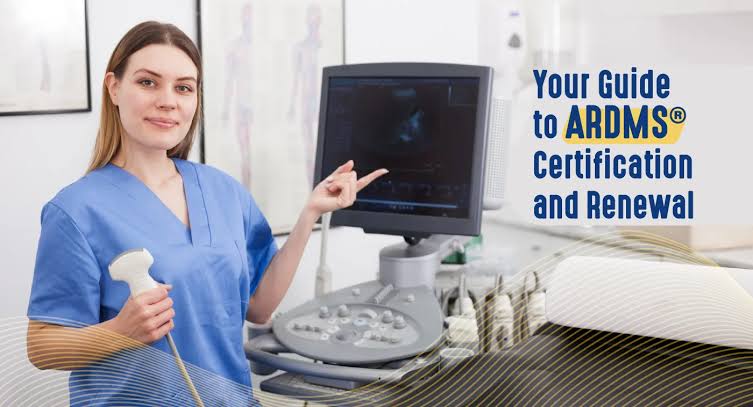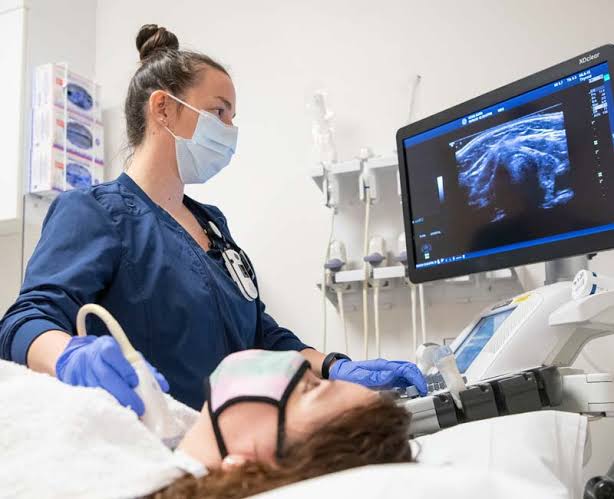How to Become an Ultrasound Technician.
Table of Contents
Introduction
Ultrasound technology is an integral part of today’s healthcare system, allowing physicians to diagnose a range of medical conditions or track patients’ health through noninvasive procedures. Ever wonder who it is holding the equipment that lets you see that grainy, black-and-white image of a baby or internal organs? Then learn more about what ultrasound technicians do: They’re also called diagnostic medical sonographers, these professionals have an incredibly important job, encompassing both technical skills and patient care.
This guide will walk you through everything you want to know about becoming an ultrasound technician, from education and certification requirements to job outlook and what actually happens at work. What is an Ultrasound Technician?
An ultrasound technician, or diagnostic medical sonographer, is a very important professional in the field of healthcare by virtue of using specialized equipment to create images from within the patient’s body. These images, called sonograms or ultrasounds, physicians apply them for the diagnosis of medical conditions, guidance in medical procedures, and the health care of an unborn child throughout the pregnancy.
Ultrasound technicians create real-time images with high-frequency sound waves, allowing doctors to make crucial decisions. Unlike X-rays or CT scans, ultrasound technology does not use radiation, making it safer for specific patients, such as pregnant women or those who have to be monitored at all times.

Increasing Demand for Sonographers
Continued advancement in medical technology perpetuates the need for ultrasound technicians. According to reports by the U.S. Bureau of Labor Statistics, diagnostic medical sonographer employment will increase by 10% between 2022 and 2032, much faster than average for all occupations. The growth is due to demands from older patients who require more diagnostic imaging as well as the preference of ultrasound technology as a safer alternative for other diagnosis methods.

What Does an Ultrasound Technician Do?
Ultrasound technicians actually perform the ultrasounds themselves, although it’s a very much larger role than just turning on equipment.
Key Responsibilities
Preparing Patients for Procedures:
This involves explaining the procedure to the patient, answering questions, and ensuring them that they are comfortable.
Operating Ultrasound Equipment:
Ultrasound techs must understand how to manipulate equipment in order to receive the most excellent possible images according to the type of scan.
Image Analysis and Interpretation:
Although diagnostic illnesses are not diagnosed by sonographers, they must be able to recognize normal findings as well as abnormal findings.
Equipment Maintenance:
A sonographer has to maintain the ultrasound machines daily to make sure they deliver the right information .
Cooperation with Physicians:
The images created by ultrasound technicians provide doctors and other caregivers with the possibility of obtaining diagnostic images

Specializations in Ultrasound
Ultrasound technologists will have specializations in different areas, depending on the patient population they want to deal with or organ system. Some of the common specializations include the following: Obstetrics and Gynecology– includes prenatal imaging and female reproductive health. Abdominal Sonography-may deal with imaging abdominal organs such as the liver, kidneys, and gallbladder. Cardiac Sonography (Echocardiography) images the heart for diagnosis of cardiac conditions. Vascular Sonography deals with focusing on blood vessels and their circulatory system.
Key Skills and Traits of a Successful Ultrasound Technician
An ultrasound technician ought to have technical skills and soft skills.
Technical Skills
Knowledge of Ultrasound Machine:
One should understand the handling of high technology image-making equipment and its limitations.
Details Insightfulness:
The ability to identify slight differences in images that may be presentations of health conditions.
Knowledge of Anatomy and Physiology:
To know how to attain good images and the interpretation that can be made based on the anatomy of a patient.
Interpersonal Skills
Communication with Patients:
Ultrasound technicians usually work with anxious or sensitive patients, so communication needs to be empathetic and explanatory about the procedure.
Collaboration:
Ultrasound techs constantly work with doctors and other nurses, as well as other health care providers.
Problem-Solving:
Since each patient is unique, ultrasound technicians often have to think outside the box to adjust equipment settings or applications to obtain optimal output.

College Prep to Become an Ultrasound Technician
Secondary Prep
A good foundation in science will be essential for would-be ultrasound technicians. For instance, courses in biology, physics, and anatomy will better equip you for the technical aspects of the role. In addition, math and computer science courses will be beneficial because sonography equipment only understands itself in mathematics and computer science.
Selecting the Right Ultrasound Program
After high school, the individual should join a Commission on Accreditation of Allied Health Education Programs (CAAHEP) accredited ultrasound technician program. This ensures the completion of a set of high standards in education through accreditation.

Ultrasound Technician Degree Options
There are several options for degrees that you can opt for:
Certificate Program (1 year):
For health-care workers who already have experience and have the need to specialize in ultrasound technology.
Associate Degree (2 years):
This is the most common option for new ultrasound techs, which provides full training.

Bachelor’s Degree (4 years):
This is less common, but can be a more extensive education and lead to leadership or specialty roles.

Ultrasound Technician Certifications
Certification in the field is not technically necessary by law, although it is strongly recommended. In fact, most employers like it because this usually means ultrasound technicians have had evidence-based experience with the subject and have the foundation knowledge associated with that education.
ARDMS Certification
The most popular certification body among ultrasound technicians is the American Registry for Diagnostic Medical Sonography, or ARDMS. To become certified, you must pass both the SPI (Sonography Principles & Instrumentation) exam and a specialty exam such as an abdominal, OB/GYN, or vascular sonography.
Other Certification Bodies
There are other bodies such as Cardiovascular Credentialing International and the American Registry of Radiologic Technologists which have certifications with specialization in specific fields.
How to Maintain Certification
Upon certification, ultrasound technologists must obtain CE credits to maintain their status. This way, they will always keep up with the latest changes in the field.
Clinical Practice of Ultrasound Technicians
The book training is not just theoretical but essential for the development of a competent ultrasound technologist. Most courses offer a clinical internship or externship where students are attached to a clinical setting under the guidance of an experienced sonographer.
Clinical Internship by Professional Schools
Find Clinical Internships
Most ultrasound programs will find clinical internships for the students but must be sought after proactively in hospitals, clinics, and in particular imaging centers.
Licensure Eligibility
While certification is not necessary in most states, some do require an ultrasound technician to have a license to practice.
State Requirements
Licensing differs from one state to another, but in New Mexico, New Hampshire, and Oregon, for instance, ultrasound techs are required to get licensed, though most states get their certification from bodies like ARDMS.

National Certification vs. State Licensing
National certification from bodies like ARDMS will be accepted as applicable than the various states, but licensing is primarily state-specific. Therefore, you should consult your state’s requirements before practicing as an ultrasound technician.
Job Advancement and Specialty Careers for Ultrasound Techs
It’s common for ultrasound techs to be employed in hospitals, clinics, and private practice settings. Each environment has a different dynamic and type of patient contact.
Specialty, Advanced Roles
With more experience and specialty certification, the ultrasound tech can opt to specialize in areas such as echocardiography or neurosonography. On the other hand, they might pursue education, research, or other management assignments in healthcare organizations.
Career Advancement and Progression
The experienced ultrasound technicians can advance to a lead sonographer or department manager. The career progression into healthcare administration is also possible. For better advancement chances, advanced certification will be useful.
Ultrasound Technician Compensation and Employment Opportunities
Median Salary by City
In 2023, the BLS estimates the median annual wage of diagnostic medical sonographers to be around $77,740. However, salaries are likely to range broadly depending on several conditions such as location, years of experience, and type of medical specialty. To illustrate, sonographers can expect higher-than-average salary deals in places like California and Washington. They are likely to get relatively low salaries in rural areas.

Factors Influencing Salary
Geographic Location:
Tends to be paid much more than other places, especially in coastal regions and metropolitan areas.
Experience: Younger ultrasound technologists are paid less than experienced professionals.
Specialization: Experienced sonographers or students specializing in a field, such as cardiac sonography, tend to be paid more.
Job Outlook and Demand
As the population of elderly people grows, so does their dependency on ultrasound to diagnose. The job outlook for ultrasound technologists is favorable for at least the next couple decades. According to the BLS, ultrasound technologists have a job growth rate of 10 percent. This means that recent graduates will have great opportunities.
Life of an Ultrasound Technician on an Everyday Basis
A Normal Day of Work
Ultrasound technicians are busy all day running around preparing patients, scanning them, analyzing the images, and contacting doctors to achieve correct diagnoses. The occupation requires long standing hours and much time in dim rooms for them to be able to see the imaging screens.
Interaction with Patients
Much of the work is patient-centered, so communication must be direct and empathetic. Patients may be anxious or in discomfort, so rapport-building and encouraging the patient to feel comfortable is important to the position.
Working with Healthcare Teams
Ultrasound technicians work closely with physicians, radiologists, and nurses to ensure high-quality care. This teamwork helps ensure that the images produced are clear and diagnostic information is accurate.

Challenges and Rewards of the Profession
Emotional and Physical Challenges
This job is physically demanding because you spend several hours on your feet and emotionally very challenging given the history of patients who come through, with various cases of critically ill patients. The challenges are thus balanced by the rewarding nature of the job concerning helping patients receive their diagnoses and treatment.
Rewards of Patient Care
It will then be presented as the self-satisfaction with the ability of the ultrasound technology professional to positively influence the lives of many patients. It can be in the form of being the first to view a baby via prenatal ultrasound or perhaps assisting the doctor in diagnosing a life-threatening condition.
Specializations under Ultrasound Technology
As a sonography technician, you can specialize in a few fields to improve your training and bright prospects in your career. Common specializations include:
- Obstetric and Gynecologic Ultrasound
It deals with women’s health and pregnancies. It is one of the most known specializations in the field. - Abdominal Sonography
These are images of the abdominal organs including the liver, kidney, pancreas, and gallbladder - Cardiac and Vascular Sonography
They concentrate on the heart and blood vessels. Diagnosis of cardiovascular diseases is mainly done by these technicians.
Work-Life Balance for the Ultrasound Technician
The ultrasound technician enjoys favorable working conditions and abundant flexibility especially in outpatient care areas. While working in hospitals, night or weekend shifts are asked for, and yet the working life balance is favored compared to most of the other healthcare professions in the world.
Dealing with Stress in the Healthcare System
Working in healthcare is stressful and, at times, traumatic. On average, however, ultrasound techs often report being under less stress than others working on the frontlines, like nurses or EMTs. Still, one should learn how to deal with health care-related stress.
Continuing Education for Ultrasound Technicians
Importance of Ongoing Learning
Health sciences are continuously evolving, and the same goes for ultrasound technology. So, keeping up-to-date with these new technologies and novel imaging techniques or medical knowledge is necessary to become successful in the profession.
Advanced Certifications
Ultrasound sonographers can continue their education in advanced certifications that include pediatric sonography, musculoskeletal sonography, and advanced cardiac sonography. This will help them to advance their careers as an ultrasound technician and present opportunities for fresh employment options.

Conclusion:
Why Being an Ultrasound Technician Is a Rewarding Career
This career is very rewarding for ultrasound technicians, as it opens up a wide chance for job opportunities and diversity in specialization, and one has the opportunity to really change patients’ lives. The flexible education options and increasing demands for experts have made this career really good for anybody interested in the field of healthcare and medical technology.
FAQs
What is the duration required to become an ultrasound technician?
Typically, it takes 2-4 years, depending on whether you want to earn a certificate, associate, or bachelor’s degree.
Do ultrasound technicians need to be certified?
Certification is not strictly required; however, it is sure to be recommended and most of the employers prefer to have a certified technician.
What is the average salary for an ultrasound technician?
The median annual salary for an ultrasound technician is approximately $77,740. Salary can change though, depending on what state you’ll work in, experience, and specialization.
What are ultrasound technician job prospects?
Exceptional employment prospects; 10% growth rate projected for the period between 2010 and 2020.
Are ultrasound technicians specialized or do they cater to a range of patient needs?
In fact, they can. The available specializations are obstetric and gynecologic sonography, cardiac sonography, vascular sonography, among many others




